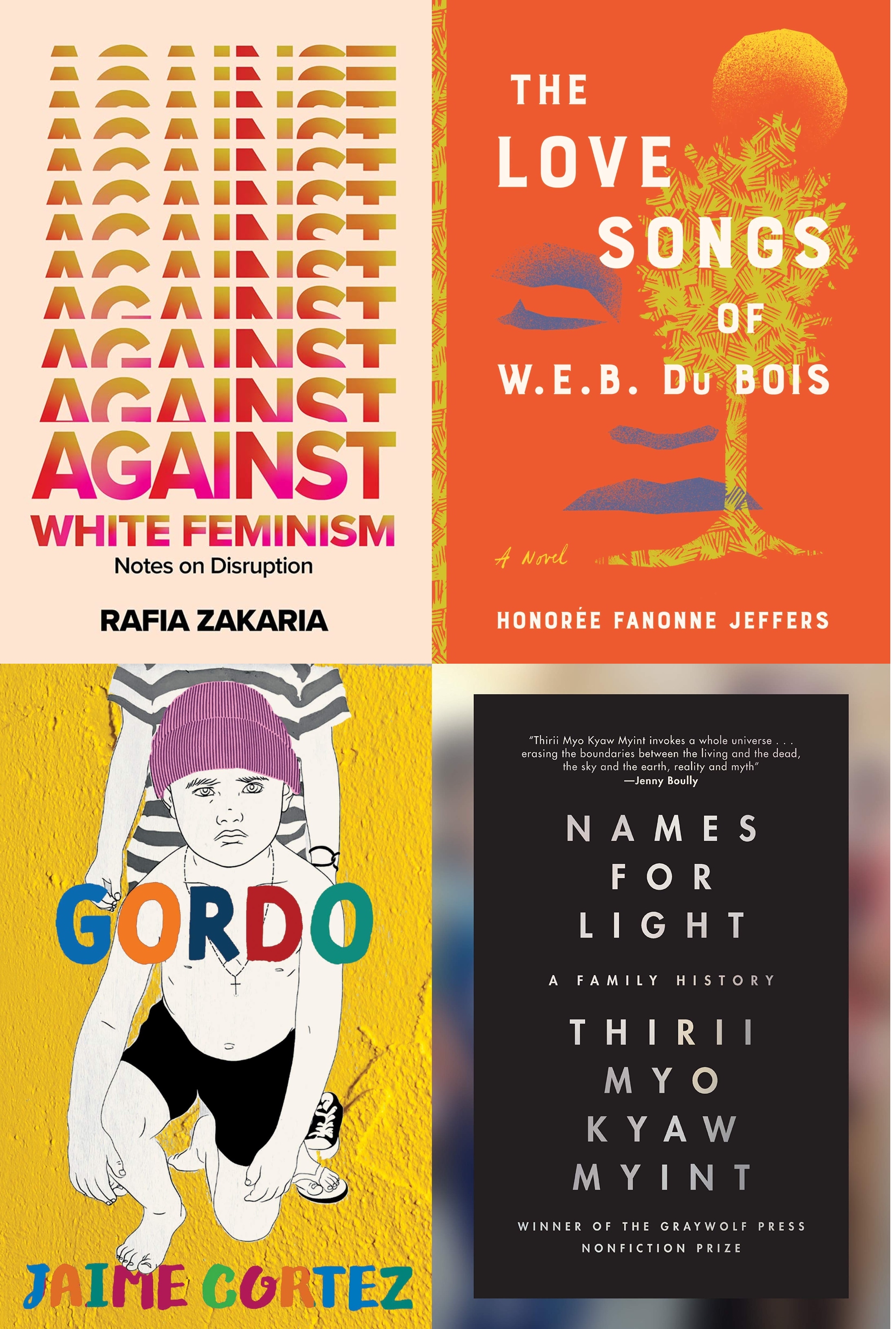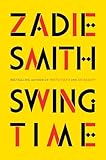We wouldn’t dream of abandoning our vast semi–annual Most Anticipated Book Previews, but we thought a monthly reminder would be helpful (and give us a chance to note titles we missed the first time around). Here’s what we’re looking out for this month. Let us know what you’re looking forward to in the comments!
Want to know about the books you might have missed? Then go read our most recent book preview. Want to help The Millions keep churning out great books coverage? Then sign up to be a member today.
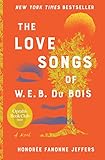 The Love Songs of W.E.B. Du Bois by Honorée Fanonne Jeffers: In her ambitious fiction debut, the 2020 National Book Award-nominated poet meditates on African-American history from the colonial slave trade to our current, turbulent age. Ailey Pearl Garfield, the protagonist of the novel, grows up navigating W.E.B. Du Bois’s “Double Consciousness” in everyday life in the deep South. Her mother’s side of family was taken to the U.S. as enslaved people. The female members of her family, in particular, went through many shocking experiences. Coming of age, Ailey learns to fully embrace her heritage by exploring and understanding the traumatic memories of her family. (Jianan)
The Love Songs of W.E.B. Du Bois by Honorée Fanonne Jeffers: In her ambitious fiction debut, the 2020 National Book Award-nominated poet meditates on African-American history from the colonial slave trade to our current, turbulent age. Ailey Pearl Garfield, the protagonist of the novel, grows up navigating W.E.B. Du Bois’s “Double Consciousness” in everyday life in the deep South. Her mother’s side of family was taken to the U.S. as enslaved people. The female members of her family, in particular, went through many shocking experiences. Coming of age, Ailey learns to fully embrace her heritage by exploring and understanding the traumatic memories of her family. (Jianan)
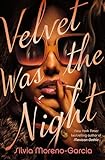 Velvet Was the Night by Silvia Moreno-Garcia: Moreno-Garcia follows up her bestselling Mexican Gothic with a noirish thriller set amid the political upheaval in 1970s Mexico City. A mousy secretary named Maite is envious of the racy life of her neighbor Leonora, a beautiful art student who goes missing. Determined to solve the mystery, Maite is soon joined in her quest by a hired thug named Elvis, who is also on Leonara’s trail. Linked by their shared love for old movies, comics and rock ’n’ roll, the unlikely duo is sucked into a world of students, radicals, Russian spies, hit men, and government agents who will kill to protect Leonora’s dark secrets. (Bill)
Velvet Was the Night by Silvia Moreno-Garcia: Moreno-Garcia follows up her bestselling Mexican Gothic with a noirish thriller set amid the political upheaval in 1970s Mexico City. A mousy secretary named Maite is envious of the racy life of her neighbor Leonora, a beautiful art student who goes missing. Determined to solve the mystery, Maite is soon joined in her quest by a hired thug named Elvis, who is also on Leonara’s trail. Linked by their shared love for old movies, comics and rock ’n’ roll, the unlikely duo is sucked into a world of students, radicals, Russian spies, hit men, and government agents who will kill to protect Leonora’s dark secrets. (Bill)
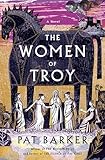 The Women of Troy by Pat Barker: Booker Prize-winning Barker got her start writing about the English working-class women she grew up with. Eventually she branched out and wrote The Silence of the Girls, a retelling of The Iliad from the eyes of an enslaved girl. She has followed that with The Women of Troy, in which the conquered titular women, led by Briseis, plot their revenge against their Greek captors, whose triumphal trip home with their spoils is delayed by uncooperative winds. Once again, Barker uses blunt prose to tell human stories that strip the romance from one of literature’s enduring epics. (Bill)
The Women of Troy by Pat Barker: Booker Prize-winning Barker got her start writing about the English working-class women she grew up with. Eventually she branched out and wrote The Silence of the Girls, a retelling of The Iliad from the eyes of an enslaved girl. She has followed that with The Women of Troy, in which the conquered titular women, led by Briseis, plot their revenge against their Greek captors, whose triumphal trip home with their spoils is delayed by uncooperative winds. Once again, Barker uses blunt prose to tell human stories that strip the romance from one of literature’s enduring epics. (Bill)
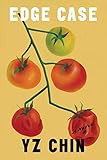 Edge Case by YZ Chin: In a follow-up to her award-winning story collection, Though I Get Home, Chin’s debut novel follows Edwina, a Malaysian immigrant living in New York City, after she is abandoned by her husband. As she searches for him, Edwina thinks back on their relationship—and navigates her feelings of isolation, uncertainty, and (perhaps misplaced) loyalty. About the book, Chia-Chia Lin writes: “A quirky story of loss and limbo, Edge Case immerses us in the worries, hopes, and absurdities of life on a work visa in America.” (Carolyn)
Edge Case by YZ Chin: In a follow-up to her award-winning story collection, Though I Get Home, Chin’s debut novel follows Edwina, a Malaysian immigrant living in New York City, after she is abandoned by her husband. As she searches for him, Edwina thinks back on their relationship—and navigates her feelings of isolation, uncertainty, and (perhaps misplaced) loyalty. About the book, Chia-Chia Lin writes: “A quirky story of loss and limbo, Edge Case immerses us in the worries, hopes, and absurdities of life on a work visa in America.” (Carolyn)
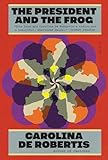 The President and the Frog by Carolina De Robertis: Inspired by the life of Uruguay’s former president José Mujica, De Robertis’ latest novel follows the 82-year-old protagonist (the “Poorest President in the World”) as he’s interviewed by a journalist. Switching between the present and memories of the past, the president—a former guerrilla, revolutionary, and political prisoner—remembers the most monumental moments of his life. About this survival story, Madeline Miller writes: “Playful and profound, unearthly yet deeply rooted, this sublime and gripping novel is above all about hope: that within the world’s messy pain there is still room for transformation and healing.” (Carolyn)
The President and the Frog by Carolina De Robertis: Inspired by the life of Uruguay’s former president José Mujica, De Robertis’ latest novel follows the 82-year-old protagonist (the “Poorest President in the World”) as he’s interviewed by a journalist. Switching between the present and memories of the past, the president—a former guerrilla, revolutionary, and political prisoner—remembers the most monumental moments of his life. About this survival story, Madeline Miller writes: “Playful and profound, unearthly yet deeply rooted, this sublime and gripping novel is above all about hope: that within the world’s messy pain there is still room for transformation and healing.” (Carolyn)
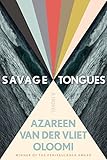 Savage Tongues by Azareen Van der Vliet Oloomi: Written with the intensity of early Duras and Ferrante’s Days of Abandonment, Savage Tongues, Van der Vliet Oloomi’s third novel, is “relentless in the best way.” Iranian-American Arezu returns to her father’s Spanish pied-a-terre that she has just inherited, conjuring the memory of an intense and catastrophic affair she had 20 years previous. With the help of a dear friend, Arezu excavates and puts words to her past trauma in this novel about love, friendship, identity, and displacement. As Garth Greenwell attests, Savage Tongues “lives at the border of memory and dream, restlessly seeking a logic that can transform cruelty into love.” (Anne)
Savage Tongues by Azareen Van der Vliet Oloomi: Written with the intensity of early Duras and Ferrante’s Days of Abandonment, Savage Tongues, Van der Vliet Oloomi’s third novel, is “relentless in the best way.” Iranian-American Arezu returns to her father’s Spanish pied-a-terre that she has just inherited, conjuring the memory of an intense and catastrophic affair she had 20 years previous. With the help of a dear friend, Arezu excavates and puts words to her past trauma in this novel about love, friendship, identity, and displacement. As Garth Greenwell attests, Savage Tongues “lives at the border of memory and dream, restlessly seeking a logic that can transform cruelty into love.” (Anne)
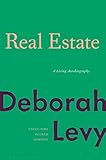 Real Estate by Deborah Levy: Real Estate, the third and final book of Deborah Levy’s ‘living autobiography,” takes on the idea of home and houses in many iterations: the haunted, the literary, and what homespace means to a woman writer. Levy considers much about unreal estate too, as the narrator collects her fantasy dream homes. “Domestic space,” Levy observes, “if it is not an affliction bestowed on us by patriarchy, can be a powerful space.” And in essence, puts forth what has always been at the heart of this project, “to embody and make present a female mind.” (Anne)
Real Estate by Deborah Levy: Real Estate, the third and final book of Deborah Levy’s ‘living autobiography,” takes on the idea of home and houses in many iterations: the haunted, the literary, and what homespace means to a woman writer. Levy considers much about unreal estate too, as the narrator collects her fantasy dream homes. “Domestic space,” Levy observes, “if it is not an affliction bestowed on us by patriarchy, can be a powerful space.” And in essence, puts forth what has always been at the heart of this project, “to embody and make present a female mind.” (Anne)
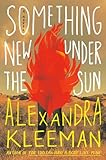 Something New Under the Sun by Alexandra Kleeman. Following You Too Can Have a Body Like Mine and a story collection, Intimations, Kleeman returns to the novel form with East Coaster Patrick coming to Hollywood to oversee the film adaptation of one of his books. He ends up, with the help of a former child star, on a mission to find out the secrets of WAT-R, a synthetic water in this satirical and imaginative novel about climate change, consumerism, fake news, informational overload, and a Hamlet problem. (Marie)
Something New Under the Sun by Alexandra Kleeman. Following You Too Can Have a Body Like Mine and a story collection, Intimations, Kleeman returns to the novel form with East Coaster Patrick coming to Hollywood to oversee the film adaptation of one of his books. He ends up, with the help of a former child star, on a mission to find out the secrets of WAT-R, a synthetic water in this satirical and imaginative novel about climate change, consumerism, fake news, informational overload, and a Hamlet problem. (Marie)
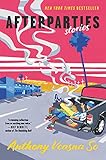 Afterparties by Anthony Veasna So. This is the debut collection of Cambodian American So, who tragically died suddenly in 2020 (his Year in Reading was published posthumously at The Millions). The collection slipstreams between humor and pathos—as suggested in the title “Three Women of Chuck’s Donuts,” a story that appeared in The New Yorker—as the characters carry the residue of the Khmer Rouge genocide through immigration, race, sexuality, friendship, and family. “Like beams of wry, affectionate light, falling from different directions on a complicated, struggling, beloved American community,” says George Saunders. (Marie)
Afterparties by Anthony Veasna So. This is the debut collection of Cambodian American So, who tragically died suddenly in 2020 (his Year in Reading was published posthumously at The Millions). The collection slipstreams between humor and pathos—as suggested in the title “Three Women of Chuck’s Donuts,” a story that appeared in The New Yorker—as the characters carry the residue of the Khmer Rouge genocide through immigration, race, sexuality, friendship, and family. “Like beams of wry, affectionate light, falling from different directions on a complicated, struggling, beloved American community,” says George Saunders. (Marie)
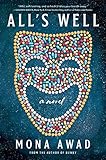 All’s Well by Mona Awad: “Dear Readers: This is one wild book!,” said Margaret Atwood on Twitter, “No holds barred.” It’s the story of Miranda Fitch, who had an accident that ended her acting career and left her with chronic back pain. She’s on the verge of losing her teaching job at a college, and facing a mutinous cast, when three strange benefactors show up. They know about her past and make alluring promises for the future—what could go wrong? If you had the pleasure of reading Awad’s acclaimed novel Bunny, you know the answer is everything and the result will be, as Heather O’Neill says, “equal parts brilliant and hilarious.” (Claire)
All’s Well by Mona Awad: “Dear Readers: This is one wild book!,” said Margaret Atwood on Twitter, “No holds barred.” It’s the story of Miranda Fitch, who had an accident that ended her acting career and left her with chronic back pain. She’s on the verge of losing her teaching job at a college, and facing a mutinous cast, when three strange benefactors show up. They know about her past and make alluring promises for the future—what could go wrong? If you had the pleasure of reading Awad’s acclaimed novel Bunny, you know the answer is everything and the result will be, as Heather O’Neill says, “equal parts brilliant and hilarious.” (Claire)
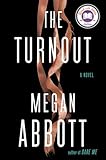 The Turnout by Megan Abbott: “Ballet flows through their veins,” says the description of this book, and Abbott’s many fans will know how unnerving these five words will turn out to be. This is the 10th novel from the bestselling author who looks at femininity and power like no one else. It’s about a ballet studio run by two sisters with long necks, taut buns, and pink tights. When a suspicious accident happens just before the annual performance of The Nutcracker, an interloper arrives and threatens to upset everything. (Claire)
The Turnout by Megan Abbott: “Ballet flows through their veins,” says the description of this book, and Abbott’s many fans will know how unnerving these five words will turn out to be. This is the 10th novel from the bestselling author who looks at femininity and power like no one else. It’s about a ballet studio run by two sisters with long necks, taut buns, and pink tights. When a suspicious accident happens just before the annual performance of The Nutcracker, an interloper arrives and threatens to upset everything. (Claire)
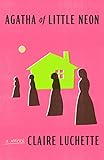 Agatha of Little Neon by Claire Luchette: The eponymous Agatha of Luchette’s debut novel has been a nun for nine years when her parish closes and she and her three sisters must move to a former mill town to take over a halfway house. In Woonsocket, Agatha becomes a teacher at an all-girls’ school and must face the world without her fellow nuns and the comfort of their closed world. Cristina Henríquez says the book is “blazingly original, wry, and perfectly attuned to the oddness—and the profundity—of life” and Karen Thompson Walker highlights Luchette’s “sneaky deadpan wit.” (Edan)
Agatha of Little Neon by Claire Luchette: The eponymous Agatha of Luchette’s debut novel has been a nun for nine years when her parish closes and she and her three sisters must move to a former mill town to take over a halfway house. In Woonsocket, Agatha becomes a teacher at an all-girls’ school and must face the world without her fellow nuns and the comfort of their closed world. Cristina Henríquez says the book is “blazingly original, wry, and perfectly attuned to the oddness—and the profundity—of life” and Karen Thompson Walker highlights Luchette’s “sneaky deadpan wit.” (Edan)
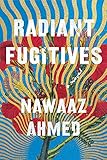 Radiant Fugitives by Nawaaz Ahmed: Ahmed’s debut novel, about three generations of women from a Muslim Indian family, is told from the point of view of heroine Seema’s baby—at the moment of its birth. Publishers Weekly, in its starred review, calls it “dazzling, heartrending,” and Peter Ho Davies named it “a rare marvel, an intimate epic of faith and family, love and politics, knit together by a magical omniscience of profound compassion.” If that’s not enough for you, rumor has it that the ending is brilliant, and reframes the entire book. (Edan)
Radiant Fugitives by Nawaaz Ahmed: Ahmed’s debut novel, about three generations of women from a Muslim Indian family, is told from the point of view of heroine Seema’s baby—at the moment of its birth. Publishers Weekly, in its starred review, calls it “dazzling, heartrending,” and Peter Ho Davies named it “a rare marvel, an intimate epic of faith and family, love and politics, knit together by a magical omniscience of profound compassion.” If that’s not enough for you, rumor has it that the ending is brilliant, and reframes the entire book. (Edan)
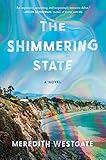 The Shimmering State by Meredith Westgate: There’s a new drug on the streets of LA: Mem, in the form of shimmering pills, contains happy memories selected to treat Alzheimer’s patients. It’s also a hit on the black market and among the elite, offering users short glimpses of someone else’s life. Though Lucien and Sophie came to the drug in different ways, it leads them both to a rehab facility run by Mem’s producers—though they’re sure they’ve run into each other before. Our own Lydia Kiesling calls The Shimmering State “hypnotic,” “a shimmering, dreamlike experience of multiple lives that collide and repel,” and, ultimately, a “beautifully dystopian shot at redemption.” (Kaulie)
The Shimmering State by Meredith Westgate: There’s a new drug on the streets of LA: Mem, in the form of shimmering pills, contains happy memories selected to treat Alzheimer’s patients. It’s also a hit on the black market and among the elite, offering users short glimpses of someone else’s life. Though Lucien and Sophie came to the drug in different ways, it leads them both to a rehab facility run by Mem’s producers—though they’re sure they’ve run into each other before. Our own Lydia Kiesling calls The Shimmering State “hypnotic,” “a shimmering, dreamlike experience of multiple lives that collide and repel,” and, ultimately, a “beautifully dystopian shot at redemption.” (Kaulie)
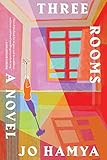 Three Rooms by Jo Hamya: Virginia Woolf said we women writers need rooms of our own; Hamya’s unnamed narrator can only manage a succession of domestic way-places, a small collection of rented rooms and childhood bedrooms. It’s 2018 and the mood in Britain is dark, smothered by both increasingly obvious inequality and instability and the realization that nobody knows what to do about it. Meanwhile, the narrator of Three Rooms shuffles from research job to temp gig, spending a lot of time online and searching for her place in the world, wondering when it all became so hard. If this sounds dark, it may be, but there’s no denying it strikes a chord, amplified by the beautifully spare prose—think Rachel Cusk, fresh from grad school. (Kaulie)
Three Rooms by Jo Hamya: Virginia Woolf said we women writers need rooms of our own; Hamya’s unnamed narrator can only manage a succession of domestic way-places, a small collection of rented rooms and childhood bedrooms. It’s 2018 and the mood in Britain is dark, smothered by both increasingly obvious inequality and instability and the realization that nobody knows what to do about it. Meanwhile, the narrator of Three Rooms shuffles from research job to temp gig, spending a lot of time online and searching for her place in the world, wondering when it all became so hard. If this sounds dark, it may be, but there’s no denying it strikes a chord, amplified by the beautifully spare prose—think Rachel Cusk, fresh from grad school. (Kaulie)
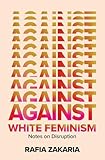 Against White Feminism by Rafia Zakaria: Journalist Zakaria has written a rebuttal to the feminism promulgated by white upper-middle-class women, including the “aid-industrial complex,” in a book that focuses on women of color and rejects “white feminism’s global, long-standing affinity with colonial, patriarchal, and white supremacist ideals.” (Lydia)
Against White Feminism by Rafia Zakaria: Journalist Zakaria has written a rebuttal to the feminism promulgated by white upper-middle-class women, including the “aid-industrial complex,” in a book that focuses on women of color and rejects “white feminism’s global, long-standing affinity with colonial, patriarchal, and white supremacist ideals.” (Lydia)
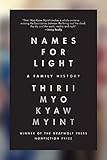 Names for Light by Thirii Myo Kyaw Myint: Winner of the Graywolf Nonfiction Prize, Myint’s lyrical memoir shifts from her family’s roots and her birth in Myanmar to her childhood in Bangkok and San Jose, moving through her own life and the lives of her family members, narrating events in both the near and distant past. In a starred review, Kirkus calls the book “An imaginative and compelling memoir about what we inherit and what we pass on.” (Lydia)
Names for Light by Thirii Myo Kyaw Myint: Winner of the Graywolf Nonfiction Prize, Myint’s lyrical memoir shifts from her family’s roots and her birth in Myanmar to her childhood in Bangkok and San Jose, moving through her own life and the lives of her family members, narrating events in both the near and distant past. In a starred review, Kirkus calls the book “An imaginative and compelling memoir about what we inherit and what we pass on.” (Lydia)
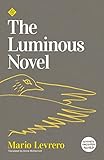 The Luminous Novel by Mario Levrero (translated by Annie McDermott): This is the latest posthumously translated novel from the Uruguayan Levrero, whose Montevideo apartment was, to quote his translator McDermott, “the centre of a small universe…his legendary literary workshops, which followed an ‘unmethodical method’ designed to put people in touch with their imagination, produced hundreds of students who consider themselves his disciples.” Here, a novelist receives a generous grant that produces an insuperable writer’s block. As with Empty Words, in which the protagonist attempts “graphological self-therapy” (handwriting exercises) to better himself, this is a digressive, Sternean tale in which interruption becomes a kind of illumination. (Matt)
The Luminous Novel by Mario Levrero (translated by Annie McDermott): This is the latest posthumously translated novel from the Uruguayan Levrero, whose Montevideo apartment was, to quote his translator McDermott, “the centre of a small universe…his legendary literary workshops, which followed an ‘unmethodical method’ designed to put people in touch with their imagination, produced hundreds of students who consider themselves his disciples.” Here, a novelist receives a generous grant that produces an insuperable writer’s block. As with Empty Words, in which the protagonist attempts “graphological self-therapy” (handwriting exercises) to better himself, this is a digressive, Sternean tale in which interruption becomes a kind of illumination. (Matt)
 Blind Man’s Bluff by James Tate Hill: In his debut memoir, Hill details how he hid his blindness from the world for nearly 15 years. After he was diagnosed with Leber’s hereditary optic neuropathy at 16, he discovered how to pass as sighted in ingenious, robust, and dangerous ways—until his life began to crumble under the weight of his denial. Rebecca Makkai writes, “Told with humor and grace, Blind Man’s Bluff is a story of reinventions—ones both enormous and minute, ones both forced and earned. It’s also an education, and an illumination.” (Carolyn)
Blind Man’s Bluff by James Tate Hill: In his debut memoir, Hill details how he hid his blindness from the world for nearly 15 years. After he was diagnosed with Leber’s hereditary optic neuropathy at 16, he discovered how to pass as sighted in ingenious, robust, and dangerous ways—until his life began to crumble under the weight of his denial. Rebecca Makkai writes, “Told with humor and grace, Blind Man’s Bluff is a story of reinventions—ones both enormous and minute, ones both forced and earned. It’s also an education, and an illumination.” (Carolyn)
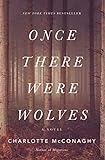 Once There Were Wolves by Charlotte McConaghy: In a follow-up to her national bestselling novel, Migrations, McConaghy writes about twins Inti and Aggie Flynn, who are both dealing and healing from trauma. Biologist Inti and her colleagues are attempting to rewild the remote Scottish Highlands and things seem to be going well—until a man is found dead and Inti makes a life-altering decision. Booklist‘s starred review calls the novel “a powerful meditation on humanity, nature and the often frightening animalistic impulses lurking within us all.” (Carolyn)
Once There Were Wolves by Charlotte McConaghy: In a follow-up to her national bestselling novel, Migrations, McConaghy writes about twins Inti and Aggie Flynn, who are both dealing and healing from trauma. Biologist Inti and her colleagues are attempting to rewild the remote Scottish Highlands and things seem to be going well—until a man is found dead and Inti makes a life-altering decision. Booklist‘s starred review calls the novel “a powerful meditation on humanity, nature and the often frightening animalistic impulses lurking within us all.” (Carolyn)
 Ramadan Ramsey by Louis Edwards: Guggenheim Fellow and Whiting Award winner Edwards returns with his newest novel follows two families across decades and continents. Set in 1999 New Orleans, Alicia Ramsey, a young Black woman, and Mustafa Totah, a Syrian immigrant, meet and fall in love before Mustafa returns to Syriah not knowing Alicia is pregnant with his son, Ramadan. Years later, 12-year-old Ramadan sets off to find his father—a journey that leads him through a hurricane-ravaged New Orleans, Istanbul, and Alleppo. Alice Randall writes: “An immediate global classic, Ramadan Ramsey joins the ranks of Sula, Oliver Twist, and Moll Flanders, as a tale named for a character that invites readers into a world both hyper-local and universal.” (Carolyn)
Ramadan Ramsey by Louis Edwards: Guggenheim Fellow and Whiting Award winner Edwards returns with his newest novel follows two families across decades and continents. Set in 1999 New Orleans, Alicia Ramsey, a young Black woman, and Mustafa Totah, a Syrian immigrant, meet and fall in love before Mustafa returns to Syriah not knowing Alicia is pregnant with his son, Ramadan. Years later, 12-year-old Ramadan sets off to find his father—a journey that leads him through a hurricane-ravaged New Orleans, Istanbul, and Alleppo. Alice Randall writes: “An immediate global classic, Ramadan Ramsey joins the ranks of Sula, Oliver Twist, and Moll Flanders, as a tale named for a character that invites readers into a world both hyper-local and universal.” (Carolyn)
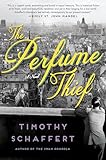 The Perfume Thief by Timothy Schaffert: Schaffert’s (The Swan Gondola) newest novel is full of decadence, intrigue, and danger. Clementine, a 72-year-old queer ex-pat and former con artist, is living in Pariss when she’s roped into her final—and perhaps most dangerous—job: to steal the recipe book of a missing Parisian perfumer before it falls into the hands of the Nazis forever. About the novel, our own Emily St. John Mandel writes: “This is historical fiction at its finest, vivid and beautifully rendered.” (Carolyn)
The Perfume Thief by Timothy Schaffert: Schaffert’s (The Swan Gondola) newest novel is full of decadence, intrigue, and danger. Clementine, a 72-year-old queer ex-pat and former con artist, is living in Pariss when she’s roped into her final—and perhaps most dangerous—job: to steal the recipe book of a missing Parisian perfumer before it falls into the hands of the Nazis forever. About the novel, our own Emily St. John Mandel writes: “This is historical fiction at its finest, vivid and beautifully rendered.” (Carolyn)
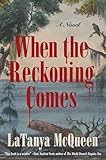 When the Reckoning Comes by LaTanya McQueen: When Mira left her small, segregated hometown, she also left behind her white best friend Celine, the haunted Woodsman plantation, and Jesse, the boy she quietly loved. When she returns to attend Celine’s wedding on Woodsman plantation, which is now a vacation resort, Mira realizes no renovation could bury the property’s racist history nor the ghosts seeking revenge on their tormentors’ descendants. “This is a novel, like Octavia Butler‘s Kindred, that reminds its readers that as long as people don’t acknowledge how much of the past still shapes the present, it will bring its whips, its hatchets, and fists to make us learn,” says Megan Giddings. (Carolyn)
When the Reckoning Comes by LaTanya McQueen: When Mira left her small, segregated hometown, she also left behind her white best friend Celine, the haunted Woodsman plantation, and Jesse, the boy she quietly loved. When she returns to attend Celine’s wedding on Woodsman plantation, which is now a vacation resort, Mira realizes no renovation could bury the property’s racist history nor the ghosts seeking revenge on their tormentors’ descendants. “This is a novel, like Octavia Butler‘s Kindred, that reminds its readers that as long as people don’t acknowledge how much of the past still shapes the present, it will bring its whips, its hatchets, and fists to make us learn,” says Megan Giddings. (Carolyn)
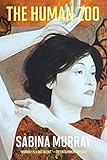 The Human Zoo by Sabina Murray: In her newest novel PEN Faulkner winner Murray writes about Christina “Ting” Klein, a Filipino-American journalist, who has left New York to escape her impending divorce and traveled to Manila to begin book research. With Procopio “Copo” Gumboc’s authoratarian regime casting a long shadow, Ting slips seamlessly back into upper class Manila life—until a tragedy threatens to completely upend her life. Maaza Mengiste writes, “This novel pulses with that most difficult of urgent truths: running away only leads us back to ourselves but that might be exactly what saves us in the end.” (Carolyn)
The Human Zoo by Sabina Murray: In her newest novel PEN Faulkner winner Murray writes about Christina “Ting” Klein, a Filipino-American journalist, who has left New York to escape her impending divorce and traveled to Manila to begin book research. With Procopio “Copo” Gumboc’s authoratarian regime casting a long shadow, Ting slips seamlessly back into upper class Manila life—until a tragedy threatens to completely upend her life. Maaza Mengiste writes, “This novel pulses with that most difficult of urgent truths: running away only leads us back to ourselves but that might be exactly what saves us in the end.” (Carolyn)
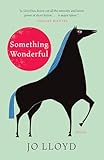 Something Wonderful by Jo Lloyd: A man seeks out his father who abandoned him at a festival. Two women hunt butterflies in the runup to World War I. A rural Welsh community catch flashes of their ultra-wealthy, but invisible, neighbors. In award-winning Lloyd’s debut collection, people are looking for ways to better themselves, their lives, and the world around them. The story collection has garnered praise from Hilary Mantel (calling Llyod “a major talent”) and Karen Russell (“Her sentences could rouse the dead (and do, in this excellent book)”). (Carolyn)
Something Wonderful by Jo Lloyd: A man seeks out his father who abandoned him at a festival. Two women hunt butterflies in the runup to World War I. A rural Welsh community catch flashes of their ultra-wealthy, but invisible, neighbors. In award-winning Lloyd’s debut collection, people are looking for ways to better themselves, their lives, and the world around them. The story collection has garnered praise from Hilary Mantel (calling Llyod “a major talent”) and Karen Russell (“Her sentences could rouse the dead (and do, in this excellent book)”). (Carolyn)
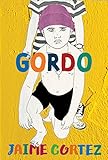 Gordo by Jaime Cortez: Visual artist and graphic novelist Cortez sets his debut collection in a migrant workers camp in rual California in the 1970s. Some, but not all of the, stories focus on the title character Gordo, the young (and likely queer) son of documented migrant farm workers, as he comes of age. Kirkus‘ starred review says the stories “serve as unvarnished, even fond, testaments to a tough, queer life.” (Carolyn)
Gordo by Jaime Cortez: Visual artist and graphic novelist Cortez sets his debut collection in a migrant workers camp in rual California in the 1970s. Some, but not all of the, stories focus on the title character Gordo, the young (and likely queer) son of documented migrant farm workers, as he comes of age. Kirkus‘ starred review says the stories “serve as unvarnished, even fond, testaments to a tough, queer life.” (Carolyn)
